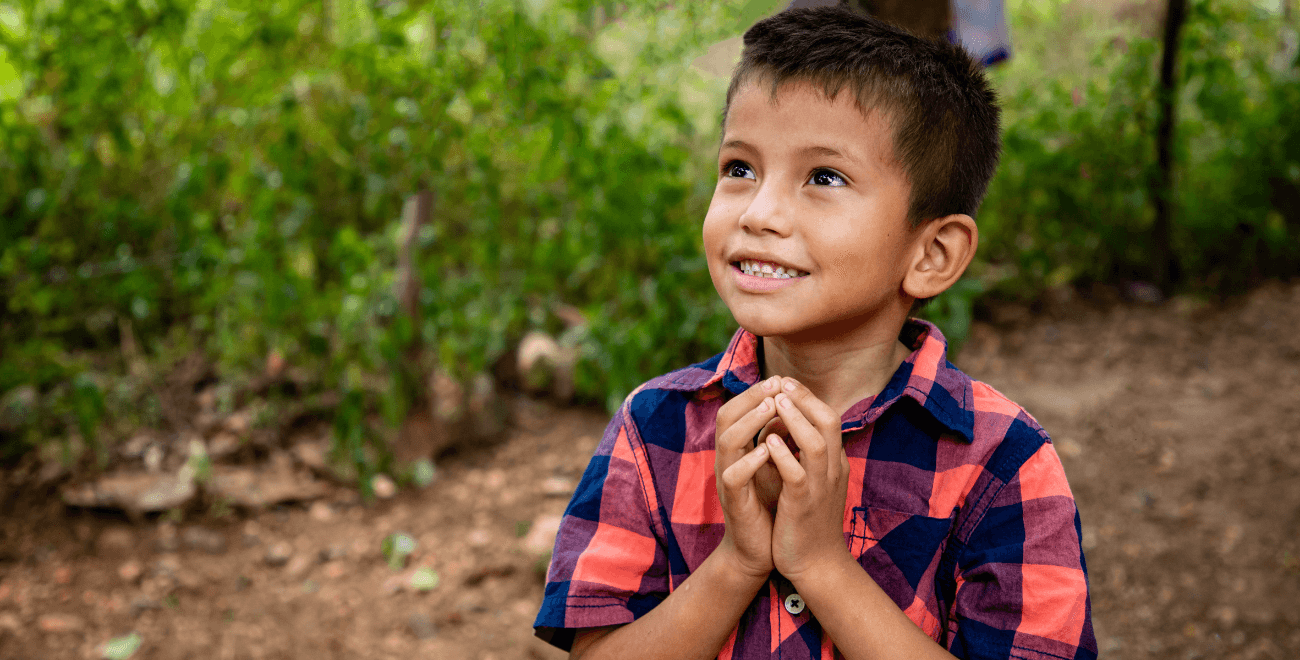Your Top 15 Questions About Writing to the Child You Sponsor, Answered
Get answers to your most common questions about how to encourage the child you sponsor.
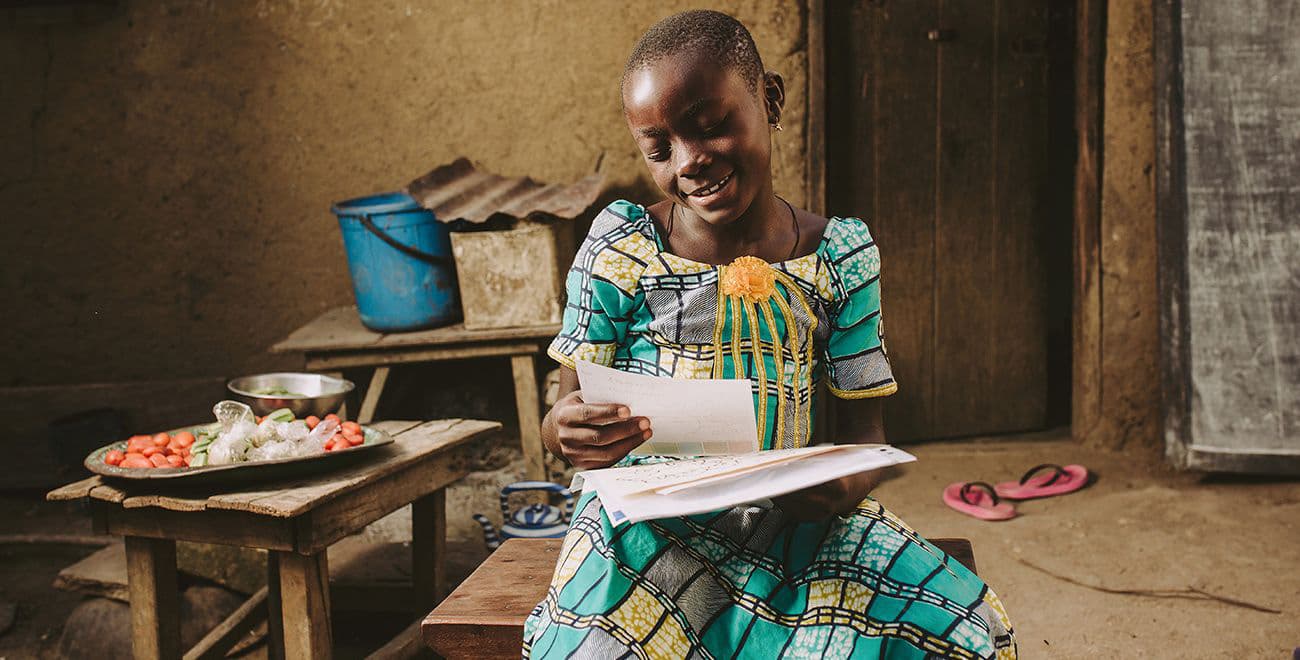
Have you ever wondered when and where your sponsored child writes their letters to you? Why their letters can sound repetitive? Or what kind of information they like to hear from you?
When you (sponsor a child)[mid-yellow], you’re joining an amazing team of people who are invested in helping that child overcome the obstacles that poverty places in their way. You’re enabling them to gain better access to education, healthcare, nutritious meals, a safe place to play, and the emotional support that comes from their local church. You also bless them with encouragement through your messages.
We’ve compiled 15 of your top questions into this handy guide. We’ll also walk you through how your precious words end up in the hands of the child you sponsor.
Follow the links for each section:
PART 1: WRITING WORDS OF ENCOURAGEMENT TO THE (CHILD YOU SPONSOR)[mid-yellow]
PART 2: THE JOURNEY OF YOUR WORDS TO THE CHILD YOU SPONSOR
PART 3: WHEN YOUR MESSAGE ARRIVES AT THE LOCAL CHURCH
PART 4: YOUR SPONSORED CHILD’S LETTER JOURNEY BACK TO YOU

PART 1: WRITING WORDS OF ENCOURAGEMENT TO THE CHILD YOU SPONSOR
1)What should I write about?
Writing – either through our convenient App, myCompassion or via a traditional letter – is such a precious part of the journey when you sponsor a child. But sometimes it’s hard to know where to begin. We hear you regularly asking for tips, so we caught up with an expert on the matter:
“First of all, don’t worry about whether your letter is too short,” shares Glenda, a tutor from Siguatepeque in Honduras who works with Compassion children. “Sometimes, it may be a three-line-paragraph, but it is still very important. Children love to hear about their sponsors’ daily activities, holidays, family events — and mostly about pets!
“Children know by heart their sponsors’ name and the country they’re from. When the sponsors include pictures or postcards that represent their country, then that helps children to create a picture in their minds of the place where their sponsor lives.”
Find more great tips about how to write an encouragement here.
2) Should I write online or handwrite my letters?
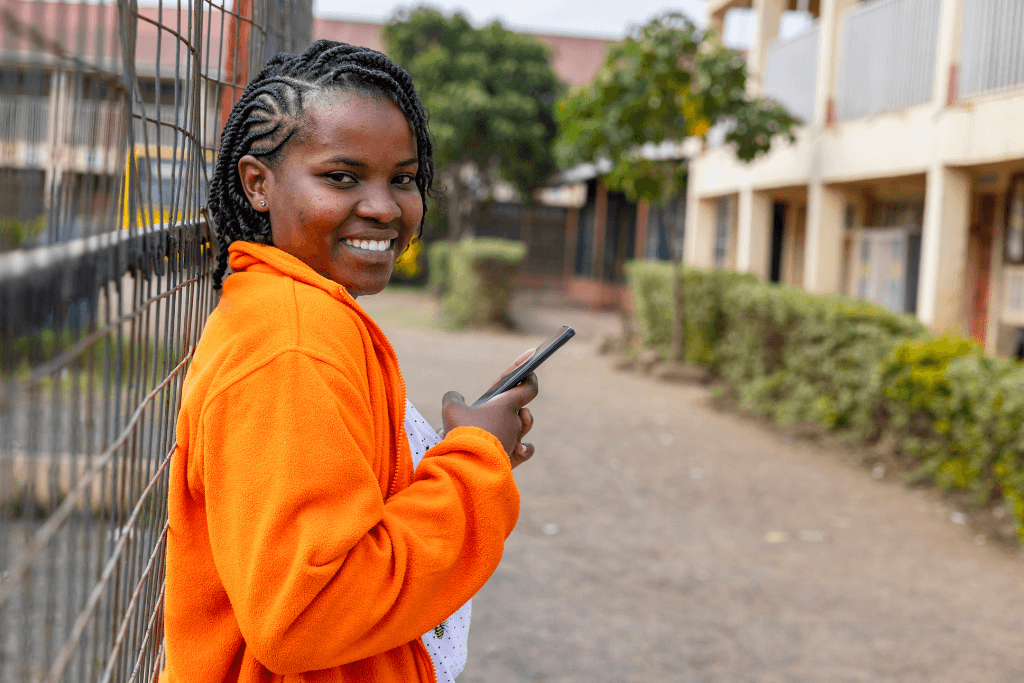
Using your myCompassion account or the new Compassion UK App is the quickest and most convenient way of sending encouragement to the child you sponsor. We can process these messages faster than a handwritten letter and for less expense. Our updated myCompassion site allows you to save drafts of your messages, and there are lovely letter and card designs for you to choose from.
If you prefer to write by hand, that’s absolutely fine – the important thing is to send a message. Even a few lines can make an incredible difference.
“We feel happy when our sponsor writes to us because it lets us know that they care about us and they also love us. I encourage those who don’t write to their children, I encourage them to write because they also want to feel special,” says 14-year-old Joan, from Uganda.
Get writing straight away by downloading our app or logging into myCompassion.
3) How do I send a handwritten letter?
If you’ve chosen to handwrite your letter, you’ll need to post it to our office. You can use one of our freepost envelopes or write the phrase ‘FREEPOST COMPASSION UK’ all in upper case on an envelope and post it to us with nothing else written on the envelope., tThis also doesn’t require a postage stamp.
PRO TIP: Before posting your letter, make sure you’ve included yours and your child’s reference number on any of your own stationary, paper gifts or cards.
Once your letter arrives, the letter is opened, checked and scanned. This means we can send a high-quality digital copy straight to the country office where your sponsored child lives, which saves time shipping it internationally.
4) How can I help my message get to the child I sponsor as quickly as possible?
The fastest way to write to your child is to use our app or myCompassion. If you’re writing a letter, one of the best ways to ensure it gets there ASAP is to use the stationery supplied by Compassion. If your letter is on personal stationery, or greeting cards, with a handwritten child and sponsor reference numbers, it will be slightly delayed as our staff and volunteers will need to do some manual processing.
When you write, please leave the translation boxes blank and please be careful not to write over the perforation.
5) What else can I send?
Along with written encouragements, you can also send paper-based items like photos, stickers, postcards and small magazines. These items will be packaged separately and sent to the country where the child you sponsor lives.
Items need to be completely paper-based as we mail them as a ‘document only’ shipment. This is because these clear customs quicker and with minimum tax/duties.
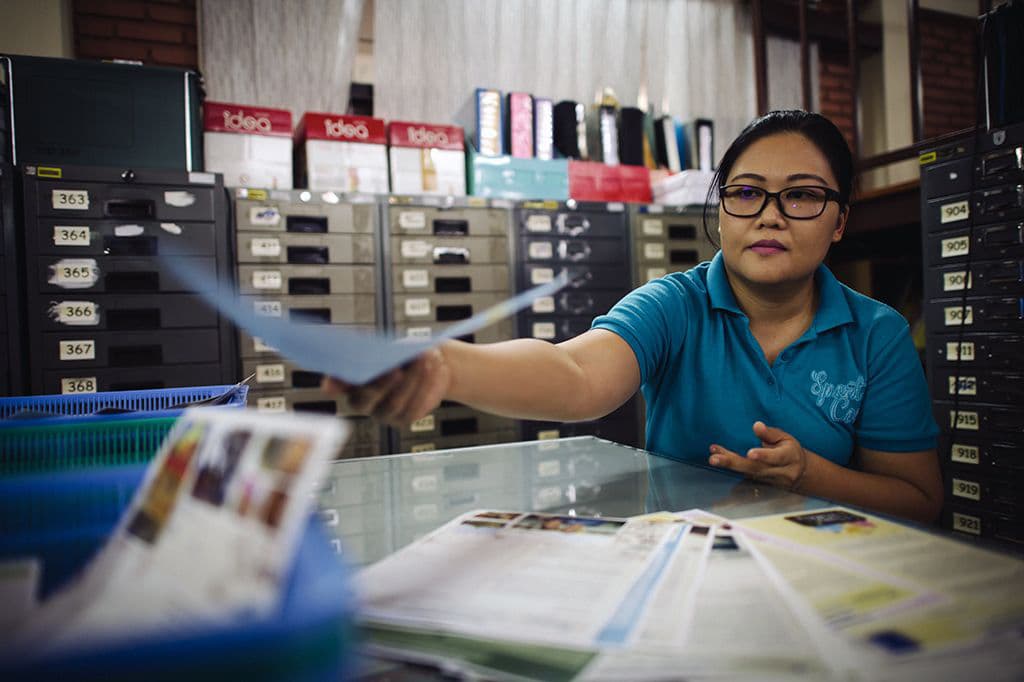
PART 2: THE JOURNEY OF YOUR WORDS TO THE CHILD YOU SPONSOR
6) Will someone translate what I write?
When we receive your encouragements, they go through a series of processes. If English isn’t the official language spoken in the country the child you sponsor lives in, then your message will be translated by local staff.
As well as translation, every letter is checked to ensure it doesn’t contain anything inappropriate, like personal addresses, phone numbers, social media accounts or any words or phrases that could be culturally insensitive. This is to keep both you and the child you sponsor safe.
7) How does my message reach the child I sponsor?
Once your message has been sent to the national office in the country where the child lives, it is printed and packed with other messages for children who attend Compassion projects there. They’re later grouped into clusters of about 12-14 Compassion projects situated close together before being put into a protective bag and sealed.
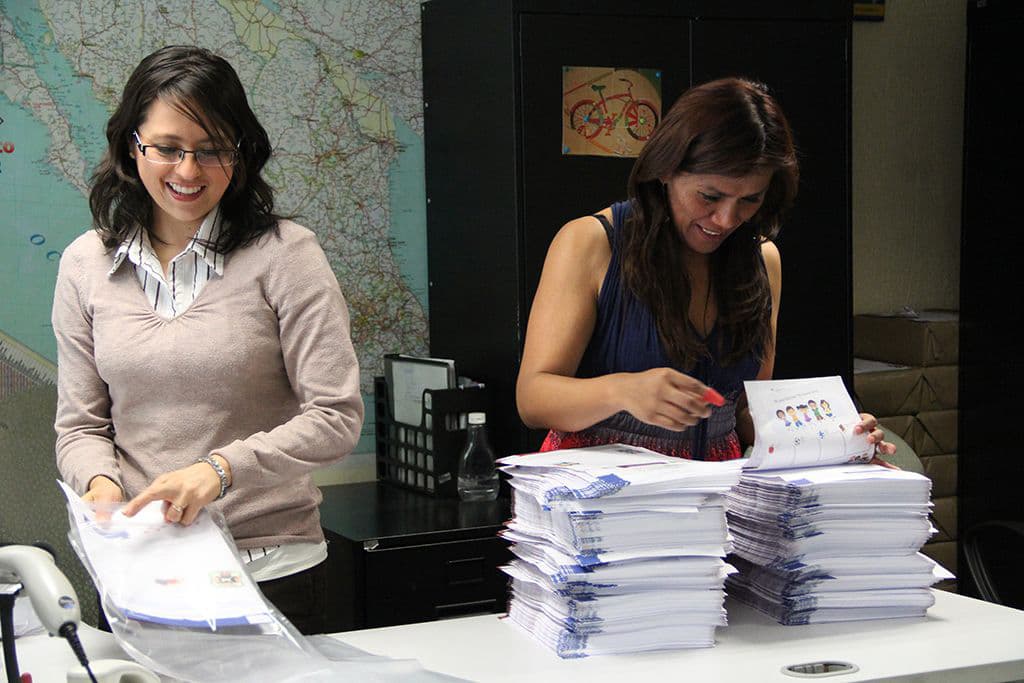
A professional courier service picks up these packages from the country office and delivers them to the collation centres. Then, the representatives from the individual church-driven project will make their journey to pick them up.
8) Why do my messages still take a long time to arrive?
How often messages are collected from the collation centre depends on the volume of letters and how difficult it is to travel to pick them up. For some rural projects, collecting and dropping them off is an epic journey.
Typically, messages will be collected every month; however, some projects, like Dove Child Development Centre in Ghana, receive so many letters that this happens every week.
The journeys to collect these aren’t always easy.
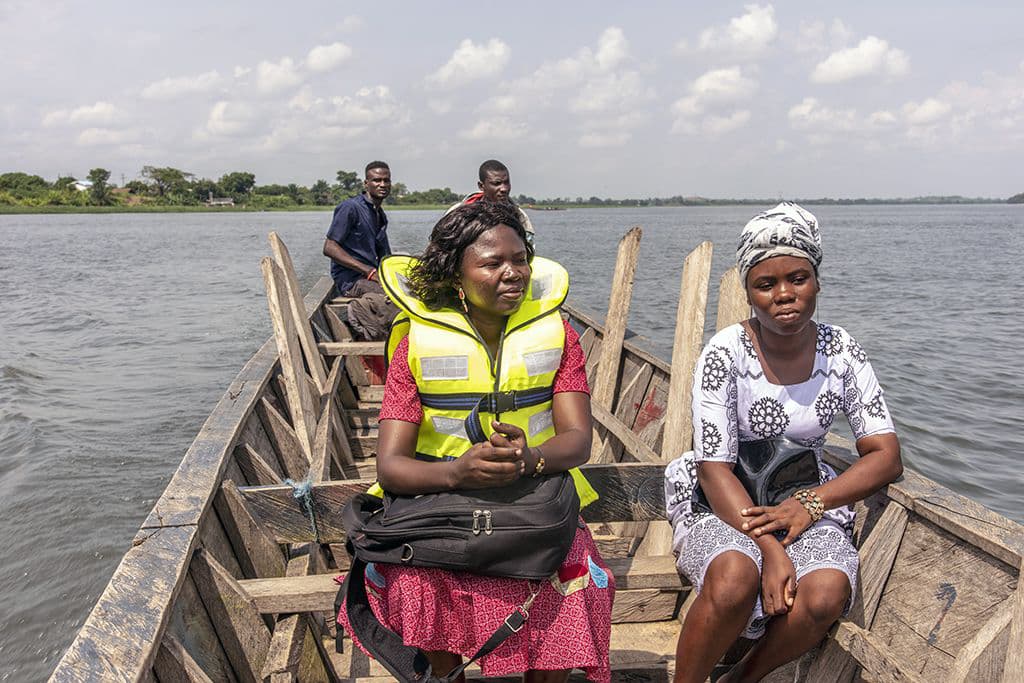
To get to her collation centre in Adidome from Dove, Lorlor travels for half an hour by motorbike to the nearest crossing for the River Volta.
After crossing the river by boat, Lorlor takes another 25-minute motorbike ride to reach Adidome. There, she meets Emmanuella, the collation officer, who has logged every message. Lorlor double checks the log and signs before Emmanuella hands over the packages to her.
Then Lorlor repeats her long journey all the way back to Dove, bearing her precious cargo.
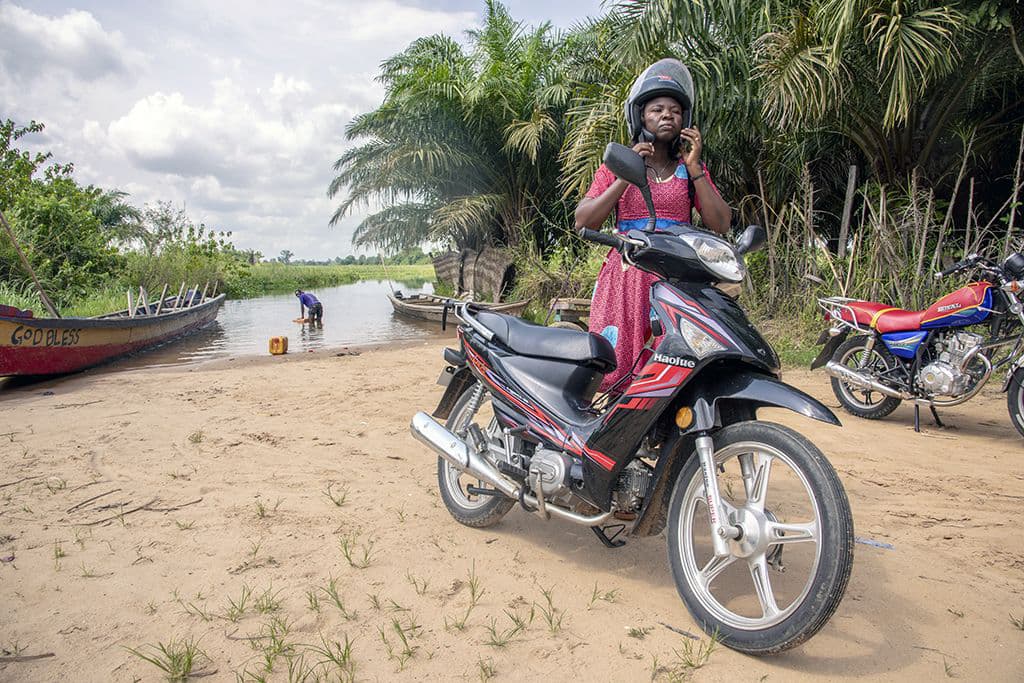
PART 3: WHEN YOUR MESSAGE ARRIVES AT THE LOCAL CHURCH
When your letter arrives at the Compassion project, your message is logged and a photocopy is taken to put in the folder of the child you sponsor. Many of the children will take these home to share with their family, so a copy is kept for when each child writes back.
9) Do children feel upset if they don’t receive a letter when others do?
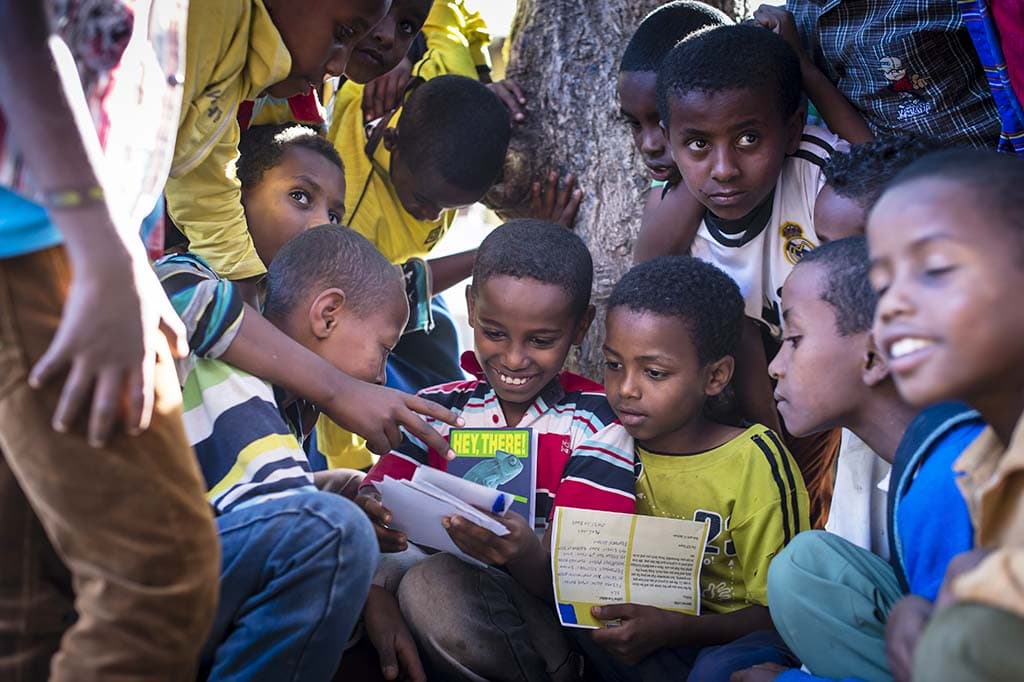
While not every child receives a message with each collection, there is still great celebration. Esinam, the project director of Dove, explains:
“When children get letters, the whole community hears about it and rejoices. Dove is a very small town that is not known to even some of her surrounding towns. So, for someone abroad to think about a child in Dove and write to that child, it is a very big thing for them.
“We thank the sponsors for their support and the gifts they send to these children. It is a life-changing opportunity.”
10) How many messages will I receive from the child I sponsor?
The child you sponsor will write to you twice a year, even if you don’t write back. We refer to these as scheduled messages.
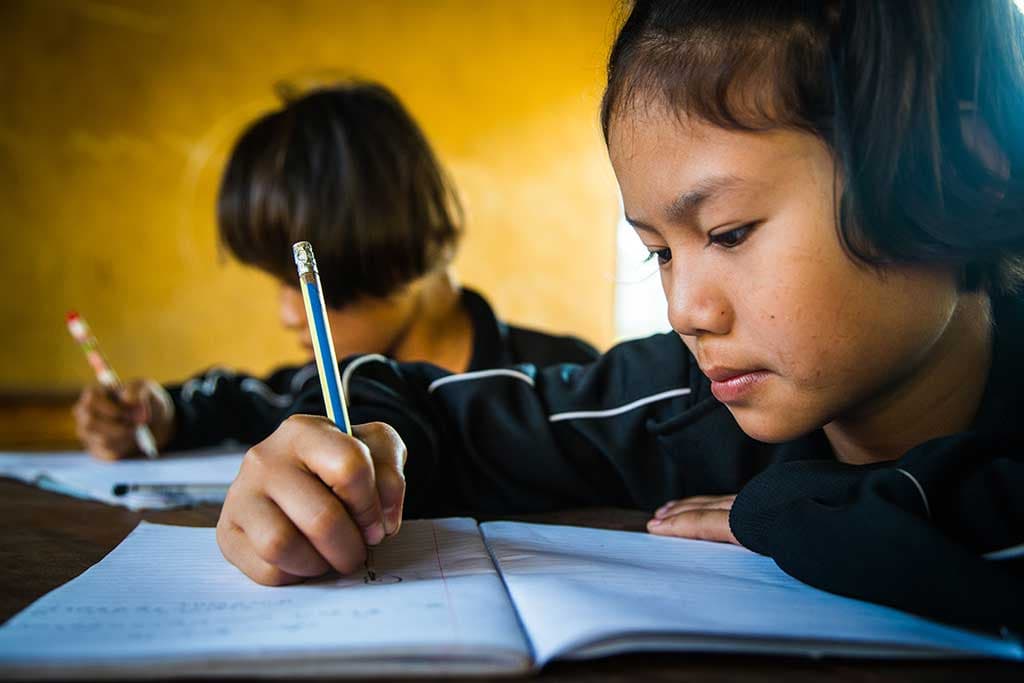
In addition to these, the child you sponsor will send reciprocal messages in response to the ones he or she receives from you.
If you were to write regularly, say once a week for two months, the child you sponsor would receive approximately eight messages during a 60-day period. This could be a little overwhelming to reply to them individually, so they will respond to all the messages received during that time with a single message.
11) Does someone help the children write their messages?
When the children at the Compassion projects write letters to their sponsors, it’s often as part of a class activity, which enables staff to provide them with plenty of support.
Each child has a notebook where they draft their message. This means they can look back and see what they wrote last time. For younger children, someone will sit with them and write on their behalf.
“Sometimes children get lost and don’t know what to write. When they feel unsure, we sit down with the children and pray together, and then we start discussing how to get their ideas flowing,” says Osiris, a tutor in Honduras.
12) Why do the messages I receive sound similar?
Writing isn’t always easy for children. In many countries, letter-writing isn’t customary. You could be the first and only person the child you sponsor has ever written to! As Flor in Nicaragua explains:
“Nicaraguans are not used to receiving letters and we don’t send any, either. Especially children who live in areas where they only go to elementary school, or their parents didn’t go to school.”
Be patient. As time goes on and they receive more messages from you we hope that the child you sponsor will grow in confidence to share more. Also, as the children grow into young adults, they’ll hopefully become better able to express themselves – your encouragement will go a long way in helping this happen.
13) Why aren’t my questions in my letter answered?
This is one of the most frequently asked questions and we understand your frustration.
It’s important to understand that your sponsored child may struggle to imagine that anyone would be interested in the details of their life such as how tall they are or what their favourite colour is. You may need to be patient and encourage your sponsored that they matter, and you’re interested in these details.
You can also underline or highlight your questions; the staff will copy down these questions and make sure that your children are able to answer them.
Part 4: Your sponsored child’s letter journey back to you
Once your sponsored child has written their letter it begins its journey back to the national office. There it is translated into English and scanned.
14) How will I know I have a letter from my sponsored child?
If we have an email address for you, you should receive an email with a digital copy as soon as your child letter is scanned. You’ll then receive a physical copy in the post later on.
PRO TIP: If you’d prefer to only receive an email copy of your child letters you can amend your preferences in your myCompassion account.
15) How often should I write back?
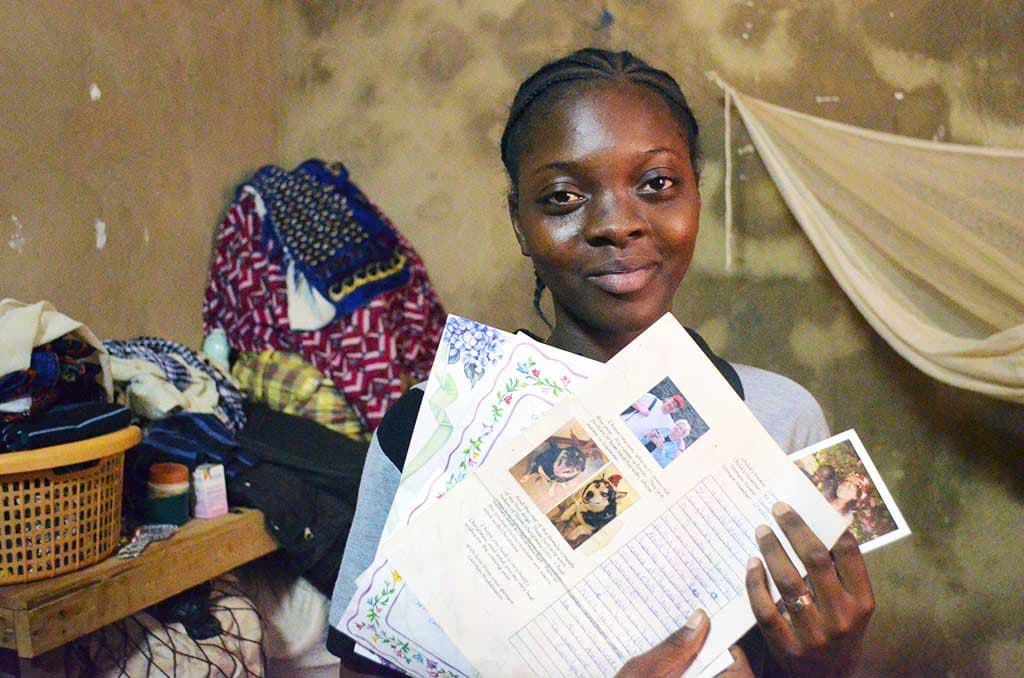
Your words are treasured no matter how often you share them. However, because letter delivery happens at least once a month* at Compassion projects, we’d love to see sponsors writing once a month.
This means that once a month when letters are passed out to all the children, you get to put a smile on their faces because they know their friend cares for them!
Why not set a monthly reminder in your calendar to write your next letter?
For some children, they’ve never had anyone tell them they are special, loved and being prayed for. By sending just a few words of encouragement you’ll have the most amazing impact.
Words by
Emily Laramy
Share:
Share:
Pray with us
Join thousands of people praying to end poverty, take action through our appeals and activities, and be inspired by how God is changing lives.
Get a little Compassion in your inbox with our Prayer and Stories email.
Remember, you can unsubscribe at any time. Please see our Privacy Policy for more information.
